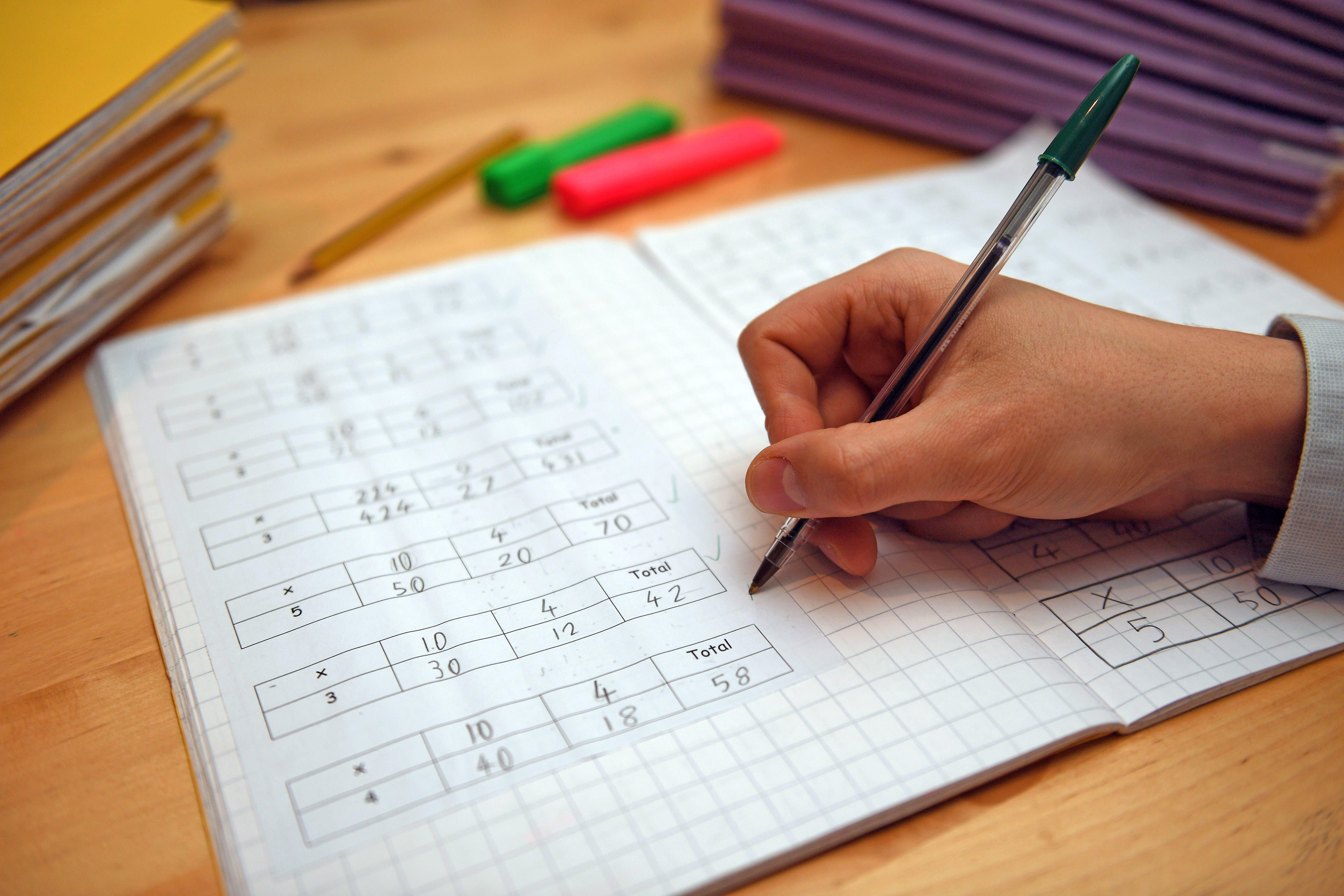Parents’ help with schoolwork does little for children’s progress – study
Research suggests having parents from a high socio-economic class almost doubles the chance of a child being rated ‘above average’ by teachers

Your support helps us to tell the story
From reproductive rights to climate change to Big Tech, The Independent is on the ground when the story is developing. Whether it's investigating the financials of Elon Musk's pro-Trump PAC or producing our latest documentary, 'The A Word', which shines a light on the American women fighting for reproductive rights, we know how important it is to parse out the facts from the messaging.
At such a critical moment in US history, we need reporters on the ground. Your donation allows us to keep sending journalists to speak to both sides of the story.
The Independent is trusted by Americans across the entire political spectrum. And unlike many other quality news outlets, we choose not to lock Americans out of our reporting and analysis with paywalls. We believe quality journalism should be available to everyone, paid for by those who can afford it.
Your support makes all the difference.The amount of time parents spend helping their children with homework contributes much less to their progress in school than the family’s social class, a study has suggested.
The effects of parents’ class, wealth and education on teachers’ perception of a pupil’s progress in school far outweighed those of the time they spent with their children, the analysis found.
The study, by researcher Lin Ding, from the University of Manchester, analysed data on more than 8,000 children from the UK at the ages of seven and 11.
Data from the Millennium Cohort Study, which involves a nationally representative sample of people born between 2000 and 2002, was used to analyse the teachers’ assessment of children’s progress in maths and creative subjects, and the amount of time parents spent with them on activities.
The research, which will be presented at the British Sociological Association’s conference in Manchester, found that having parents with degrees – or who are well-off or from a high socio-economic class – approximately doubles the chance of children being assessed as “above average” by their teachers.
The time parents spent helping primary-aged children with their maths work and reading to them had only a small positive effect on their school progress as rated by teachers, the research found.
At age seven, children who received daily help with maths from their parents had only a 1.8 per cent increased chance of being assessed as “above average”, according to the study.
Meanwhile, parents reading to their children and going to libraries had a small positive effect on their teachers’ assessment, but time spent on musical or physical activities had no effect.
The data showed that for children aged seven, nearly two in five (39 per cent ) of those from the highest class families were seen by teachers as “above average” in maths, compared with only 21 per cent of those whose parents were manual workers – the lowest of five classes used in the analysis.
When considering creative subjects, 28 per cent of the children from the highest class were perceived as being “above average” by teachers, compared with 14 per cent of those whose parents were manual workers.
The figures were similar when comparing children with parents from the richest class and poorest class, and those with parents with degrees and those without qualifications.
Ms Ding, who carried out the research as part of her PhD studies, will tell the British Sociological Association’s conference on Wednesday: “The effect of various parenting activities is much less significant than parents’ class, income and educational level. Family income has a greater impact on children’s performance in core subjects than in creative subjects.
“The relative insignificance of parenting activities in these models may be due to the fact that high frequency of parenting activities does not necessarily equate to high-quality parenting.
“The method and quality of parenting may be crucial. For example, parents from different social classes may all read to their children, but the selection of reading materials and the explanation that comes with reading may differ.”
She will add: “Middle-class parents may have more advanced educational methods that may better involve their children in academic activities, mainly by helping them adapt to the school environment earlier.
“On the other hand, lower-class parents may be more inclined to focus on and take remedial measures only when their children encounter learning difficulties.”
Ms Ding found that teachers’ assessment of pupil performance accurately matched the maths scores students achieved in tests at age seven and 11.
Julie McCulloch, director of policy at the Association of School and College Leaders (ASCL), said: “This study clearly shows that socio-economic disadvantage is a key determining factor in educational outcomes and reinforces the importance and urgency of a new national strategy to tackle this issue.”
James Bowen, director of policy at school leaders’ union NAHT, said: “Parents play an absolutely crucial role in their child’s education. We would strongly encourage all parents to engage with their child’s school in terms of how best to support their child’s learning.”


